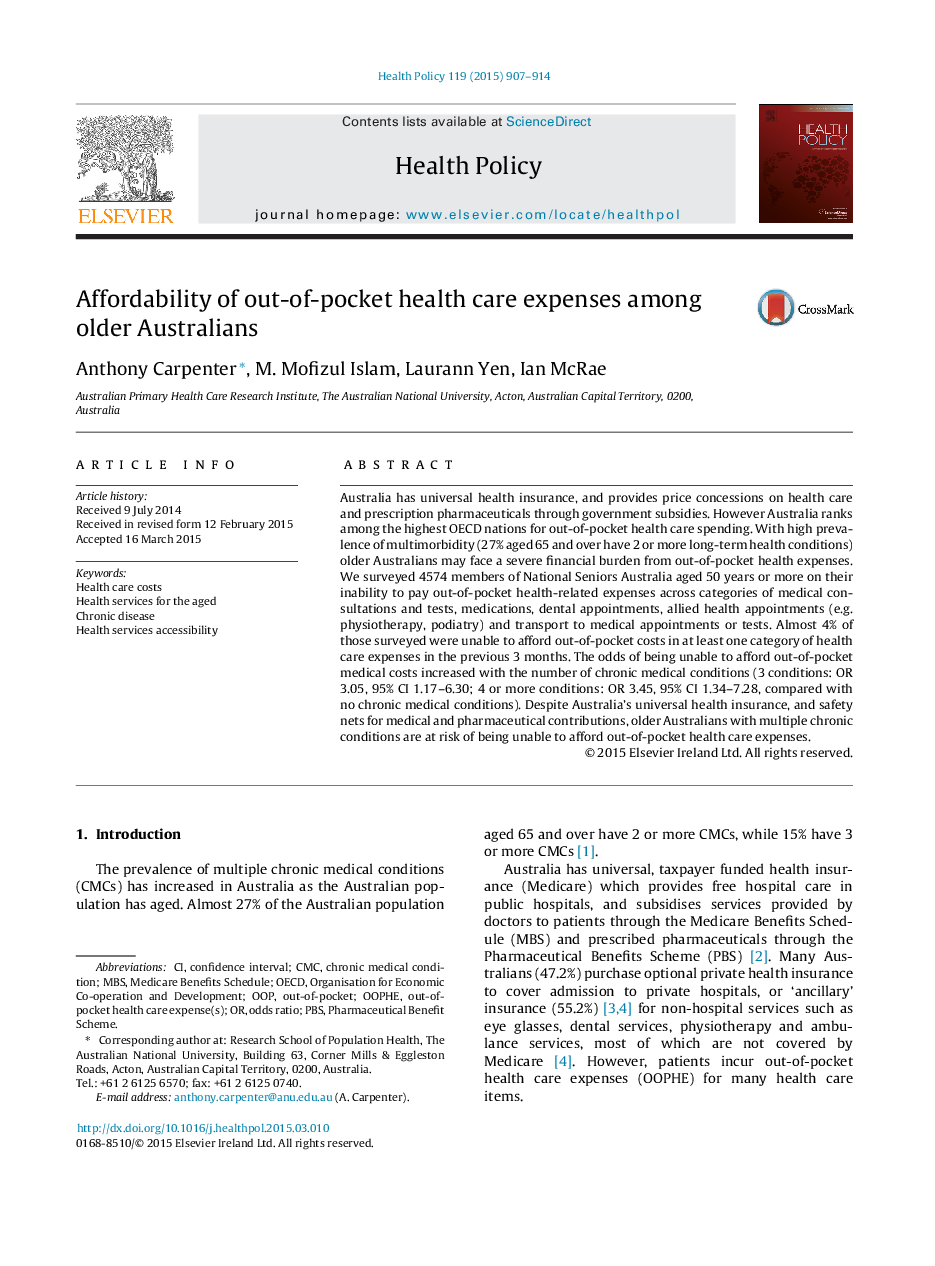| Article ID | Journal | Published Year | Pages | File Type |
|---|---|---|---|---|
| 6239297 | Health Policy | 2015 | 8 Pages |
â¢We examined ability to pay out-of-pocket health care expenses and chronic conditions.â¢In those aged 50 and over, multimorbidity predicts inability to pay these expenses.â¢Medical consultations and medications were the major out-of-pocket costs.â¢Households borrow money, sell assets and use savings to pay these costs.â¢Financial protection for older, multimorbid Australian patients may not be adequate.
Australia has universal health insurance, and provides price concessions on health care and prescription pharmaceuticals through government subsidies. However Australia ranks among the highest OECD nations for out-of-pocket health care spending. With high prevalence of multimorbidity (27% aged 65 and over have 2 or more long-term health conditions) older Australians may face a severe financial burden from out-of-pocket health expenses. We surveyed 4574 members of National Seniors Australia aged 50 years or more on their inability to pay out-of-pocket health-related expenses across categories of medical consultations and tests, medications, dental appointments, allied health appointments (e.g. physiotherapy, podiatry) and transport to medical appointments or tests. Almost 4% of those surveyed were unable to afford out-of-pocket costs in at least one category of health care expenses in the previous 3 months. The odds of being unable to afford out-of-pocket medical costs increased with the number of chronic medical conditions (3 conditions: OR 3.05, 95% CI 1.17-6.30; 4 or more conditions: OR 3.45, 95% CI 1.34-7.28, compared with no chronic medical conditions). Despite Australia's universal health insurance, and safety nets for medical and pharmaceutical contributions, older Australians with multiple chronic conditions are at risk of being unable to afford out-of-pocket health care expenses.
